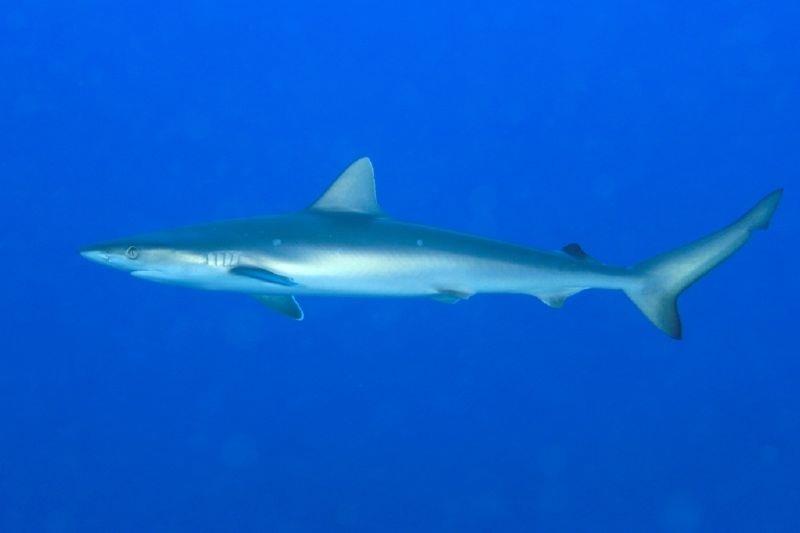
Are all U.S. sharks overfished?
by NOAA Fisheries 15 Aug 2020 15:50 BST

Atlantic sharpnose shark © Kevin Bryant
The world's oceans are home to around 500 species of sharks. With so many species, it's difficult to talk about the status of shark stocks overall.
Regardless of the species, federal laws and regulations work to ensure that shark fisheries in the United States are healthy going into the future.
Read the facts below to learn more about what it means to be overfished and how we sustainably manage our shark fisheries.
1. U.S. law requires that shark fishing rules foster long-term biological and economic sustainability
Fishery management in U.S. federal waters is governed primarily by the Magnuson-Stevens Act. First passed in 1976, the act requires that all fishery management plans meet 10 National Standards. That means the approximately 50 species of sharks managed in federal waters are fished under rules designed to:
- Prevent overfishing
- Rebuild overfished stocks
- Increase long-term economic and social benefits of fisheries
- Ensure a safe and sustainable seafood supply
Gulf of Mexico blacktip sharks are a good example of these rules at work. A popular food fish, blacktip sharks experienced a slight population decline in the 1990s. We established a quota specifically for this population in 2015. That combined with retention limits tied to other commercially valuable species contributed to a higher population today than the target level set by scientists.
Learn more about U.S. fisheries management
Understand why U.S.-caught sharks are a sustainable food choice
2. The terms "overfished" and "threatened" mean different things
It's a common misconception that overfished species are at risk of extinction. But the categories of overfished and overfishing are not directly related to threatened and endangered designations under the Endangered Species Act.
To understand the difference, it helps to know another term: maximum sustainable yield. This is the largest catch level that a species can sustain over a long period of time. If a stock is declared overfished, that means its numbers have fallen too low to produce its maximum sustainable yield. An overfished status doesn't say anything directly about whether the species is endangered or likely to become endangered.
NOAA Fisheries is dedicated to rebuilding overfished stocks. Of the 43 shark stocks managed in the Atlantic Ocean, six are overfished. We have put rebuilding plans in place for each of these with strict catch limits based on the best available science. These limits are closely monitored and enforced.
Learn more about efforts to rebuild sandbar shark populations
Learn more about how retention limits help us sustainably manage shark fisheries
3. Our largest shark fisheries target healthy stocks
The vast majority of sharks harvested in the United States are species with above-target population levels. In the Atlantic, for example, 94 percent of all U.S. shark landings in 2018—including bycatch—were of five species, which are neither overfished nor subject to overfishing:
- Spiny dogfish shark
- Smooth dogfish shark
- Gulf of Mexico blacktip shark
- Atlantic sharpnose shark
- Finetooth shark
Two of these—spiny dogfish and Gulf of Mexico blacktip—have actually experienced population growth over recent decades.
Learn more about how spiny dogfish have benefited from sustainable management
4. Some of the shark stocks at risk overseas are strong in the United States
It's true that unsustainable fishing, habitat loss, and other practices such as shark finning have greatly depleted some shark populations overseas. In the United States, we're committed to ensuring sustainability through science-based management.
U.S. fishermen operate under some of the most transparent and robust environmental standards in the world. We use annual quotas, retention limits, naturally attached fin requirements, and other tools to prevent overfishing. Our management also keeps fishermen on the water and ensures fresh seafood is available to consumers.
Effective enforcement is also a critical component of our fisheries management approach. NOAA Fisheries conducts patrols both on and off the water. We also monitor vessel activities, conduct investigations, and use other measures—including emerging technologies—to ensure fishery management rules and regulations are followed.
Learn more about our shark fishing rules and regulations
Learn more about how we support international shark conservation